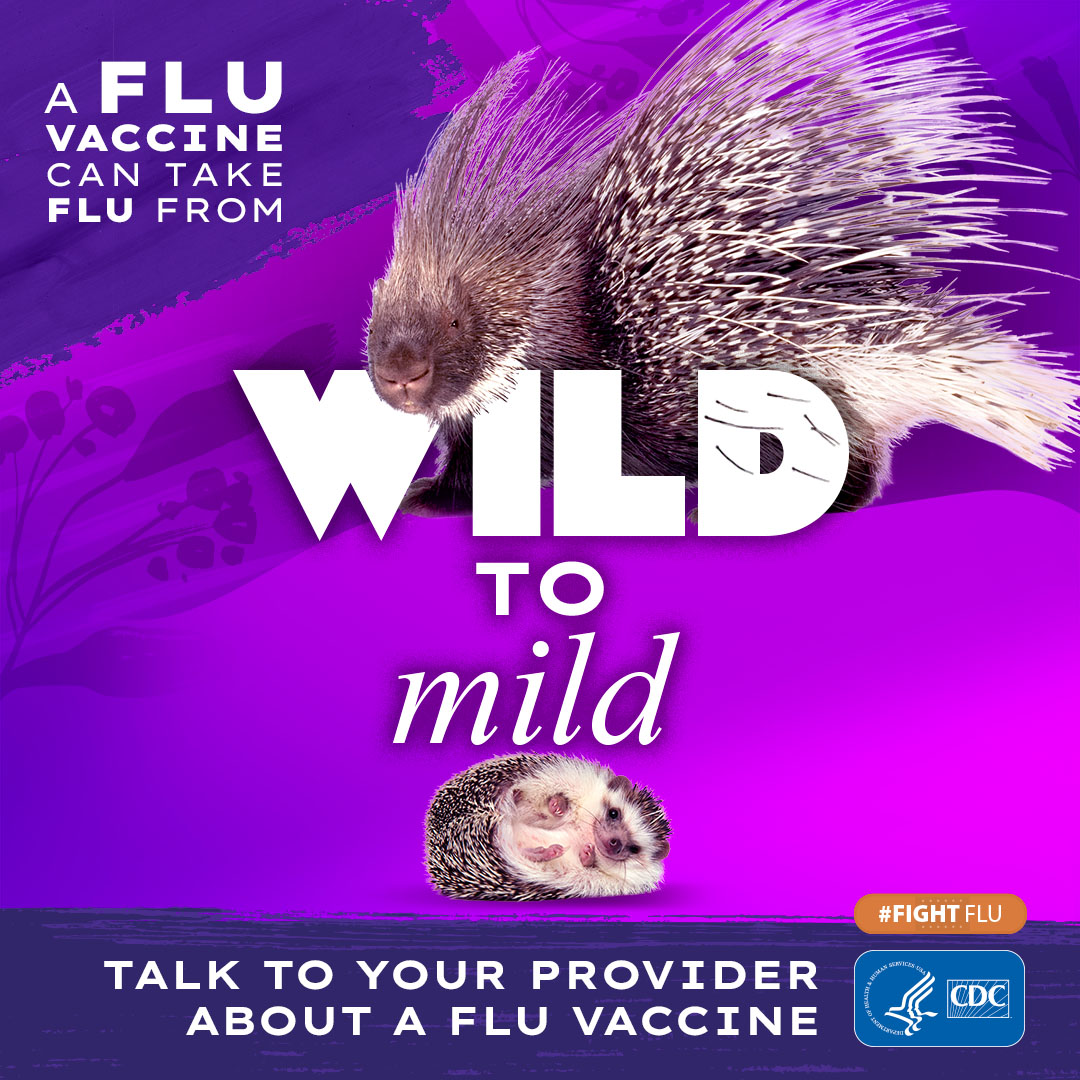Flu Information

Flu symptoms
Symptoms of flu usually come on suddenly and include fever and one or more of the following: cough, fatigue, sore throat, body aches, and occasionally - headache and vomiting.
How do I know if I have the flu?
You may have the flu if you have some or all of these symptoms:
• fever *
• cough
• sore throat
• runny or stuffy nose
• body aches
• headache
• chills
• fatigue
• sometimes diarrhea and vomiting
*It's important to note that not everyone with flu will have a fever.
What should I do if I get sick?
If you get sick with flu-like symptoms this flu season, you should stay home and avoid contact with other people except to get medical care.
However, the following groups of people are more likely to get flu complications and they should talk to a health care provider about whether they need to be examined if they get flu symptoms this season:
• Children younger than 5, but especially children younger than 2 years old
• People 65 and older
• Pregnant women
• People who have:
Cancer
Blood disorders (including sickle cell disease)
Chronic lung disease [including asthma or chronic obstructive pulmonary disease (COPD)]
Diabetes
Heart disease
Kidney disorders
Liver disorders
Neurological disorders (including nervous system, brain or spinal cord)
Neuromuscular disorders (including muscular dystrophy and multiple sclerosis)
Weakened immune systems (including people with AIDS)
Also, it's possible for healthy people to develop severe illness from the flu, so anyone concerned about their illness should consult a health care provider.
How long should I stay home if I'm sick?
Centers for Disease Control recommends that you stay home for at least 24 hours after your fever is gone except to get medical care or for other things you have to do and no one else can do for you. (Your fever should be gone without the use of a fever-reducing medicine, such as Tylenol®.) You should stay home from work, school, travel, shopping, social events, and public gatherings
Tips for Personal Hygiene
• Cover your mouth and nose with a tissue when you cough or sneeze; put the used tissue in a waste basket and clean your hands.
• Cover your mouth and nose with your upper sleeve (not your hands) if you do not have a tissue and need to cough or sneeze.
• Clean your hands as soon as possible after coughing, sneezing, or blowing your nose.
• Use soap and water and wash your hands for 15 - 20 seconds; or
• Use alcohol-based hand wipes or alcohol-based (60-95% alcohol) gel hand sanitizers; rub these on the hands until the liquid or gel dries.
• Clean your hands often when you or others are sick, especially if you touch your mouth, nose, and eyes.
• Always clean your hands before eating.
• Carry alcohol-based hand wipes or alcohol-based (60-95% alcohol) hand-sanitizing gels with you to clean your hands when you are out in public.
• Teach your children to use these hygiene practices because germs are often spread at school.
• Everyday Preventive Actions from the CDC (Centers for Disease Control and Prevention).
For more information on local influenza clinics, click on the link to your county below or go to the New York State Department of Health Website. Visit the Centers for Disease Control and Prevention for more information on flu and flu prevention.